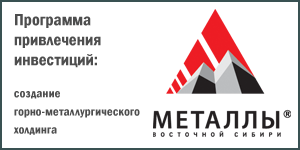The news leaked this week that the Russian
government is planning to reverse a cut in the payroll tax by 2014
confirmed what most experts already knew – that a social tax relief
recently implemented by the government was largely
electioneering.
Kommersant reported that a 2012-2014 budget plan
for the pension fund, presented by Health Minister Tatiana Golikova
on Wednesday, assumed the payroll tax (Unified Social Tax), which
goes toward healthcare and pensions, will increase to 34 percent by
2014.
President Dmitry Medvedev ordered a reduction in
the tax, paid solely by employers, earlier this year to 20 percent
for small and mediumsized companies and 30 percent for everyone
else. The reduction kicks in only in January 2012.
The measure is good for encouraging business
start-ups, which had been suffocated under the previous regime, but
bad for state coffers, already troubled by a gaping budget
deficit.
Finance Minister Alexei Kudrin estimated that
the tax cut would cost the budget 400 billion rubles ($13
billion.)
While Gorlikova’s presentation was not open to
journalists, Prime Minister Vladimir Putin announced increases in
social spending at Wednesday’s government session and hinted that
Russia should “stimulate taxes” rather than relying on a high oil
price. The spending increase includes a 70 billion ruble ($2.2
billion) increase in spending on maternity capital over the next
three years.
Natalia Orlova, chief economist at Alfa Bank,
told The Moscow News that the reversal in the tax was unsurprising
given that forecasts suggest the pension fund will be in a poor
condition by 2014. “Our population is aging and the government
requires more and more money to meet [pension] obligations,” Orlova
said. “At the same time, it still isn’t clear where the money for
the fund will come from.” “If previously the decisions made on
social taxes were based on the needs of the pension fund, now
election interests prevail. After the elections, economic
considerations will come back to the fore,” she added.
Analysts say that an increase in Russia’s
retirement age is inevitable after the elections. Russia has one of
the lowest retirement ages in the world, at 60 for men and just 55
for women, and the government is running a multi-billion dollar
pension fund budget deficit.
Currently pensioners constitute around a third
of the number of workers in Russia and the Standard and Poor’s
credit ratings agency estimates this ratio to grow to 50/50 by
2030.
Analysts say there is an urgent need for the
government to restructure its taxation policy and find alternatives
to the flawed payroll tax.
Mark Rubenstein, head of research at
the Metropol investment bank, advocates a direct tax increase
imposed exclusively on the commodities sector, which would ease the
burden on smalland medium-sized companies.
This idea was already partially fulfilled by
Putin’s budget announcement Wednesday, in which he said that part
of the funds for increased social spending would come from higher
taxes on the stateowned gas monopoly Gazprom.
Orlova of Alfa bank said that any reform in the
structure of the pension fund needs to focus on decreasing spending
rather than increasing income, which points toward raising the
retirement age as the best solution. The measure has long been
encouraged by Kudrin, but is unlikely to happen ahead of the
elections.
http://www.themoscownews.com/finance/20110922/189062134.html







